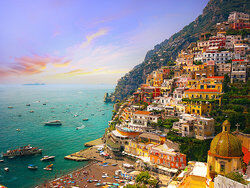

The job of fiction writers is to transport their readers to fascinating places and times. A great novel can take us back to medieval times, over to deserted islands, or even into a fantasy world. With a task like that, tired and overused words like "pretty" and "fun" just won't cut it. How about unspoiled terrain or stormy waters?
If we can find the right words to conjure up a three-dimensional scene, readers are likely to book return flights with their favorite authors. Use this list of words to describe places as a springboard for new territory. Truth is, the more we read, the more words will stick to our memory bank. Until then, let's start traveling.
The words we choose will allow the reader to understand the writer's perspective. To call something bustling and vibrant is quite different from desolate and deserted. Will any of these descriptive words for places stoke the flames of your next scene?
If the show doesn't fit, don't force it. Go ahead and call it polluted, rundown, or even horrifying. Try to evoke scents as well as sights with your prose. Some of these words may be subject to opinion, such as crowded or touristy, but readers will quickly catch your connotation.
Sometimes, it all boils down to the facts of the matter. Perhaps you're visiting ancient ruins or staying at a contemporary resort. Here are some unbiased descriptors to help you label a place:
It's kind of like a superpower. Writers can use black words on a white page to transport readers out of their sofa and into foreign lands. You could describe a war or the perfect Utopia. The words writers choose to describe places are important; they're the vehicle that moves people from place to place.
Are you looking to kickstart your writing adventures with a short story? Then, come on over. Let's get creative. Here's how to write a short story.